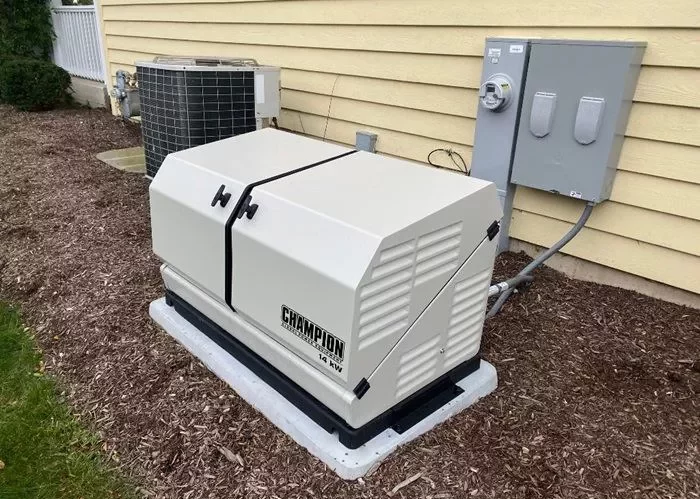Generac home generators are reliable backup power solutions that keep homes running during outages. But how do they work, and what fuels their operation? This article explores the different power sources behind Generac generators, their mechanisms, and how they ensure uninterrupted electricity.
How Generac Home Generators Work
Generac home generators are standby systems that automatically activate when the main power grid fails. They consist of several key components:
Engine: The core of the generator, converting fuel into mechanical energy.
Alternator: Converts mechanical energy into electrical power.
Transfer Switch: Safely switches home circuits from grid power to generator power.
Control Panel: Monitors power conditions and manages generator operation.
When a power outage occurs, the generator’s control system detects the disruption and signals the engine to start. The alternator then produces electricity, which is distributed through the home’s electrical panel.
Common Fuel Types for Generac Home Generators
Generac generators can run on different fuel sources, each with unique advantages. The most common options include:
Natural Gas
Natural gas is a popular choice for standby generators because it is supplied through utility lines, ensuring a continuous fuel source.
How It Works
The generator connects to the home’s natural gas line.
When activated, gas flows into the engine, where it combusts to produce power.
Advantages
- No need for refueling.
- Cleaner burning compared to diesel or propane.
- Reliable supply during extended outages.
Disadvantages
- Dependent on utility infrastructure (may fail in disasters).
- Slightly less efficient than diesel.
Liquid Propane (LP)
Propane is stored in tanks on the property, making it a good option for homes without natural gas access.
How It Works
- Propane is drawn from storage tanks into the engine.
- It vaporizes and mixes with air before combustion.
Advantages
- Long shelf life (does not degrade like gasoline).
- Can be stored in large quantities.
- Cleaner emissions than diesel.
Disadvantages
- Requires periodic refilling.
- Storage tanks take up space.
Diesel
Diesel generators are known for their durability and efficiency, often used in commercial settings but also available for homes.
How It Works
- Diesel fuel is injected into the engine under high pressure.
- Compression ignition (no spark plugs needed) powers the generator.
Advantages
- High energy efficiency.
- Long-lasting engines.
- Better for heavy-duty use.
Disadvantages
- Noisier and produces more emissions.
- Requires regular maintenance.
Bi-Fuel Systems (Diesel & Natural Gas)
Some Generac models support dual-fuel operation, allowing flexibility between diesel and natural gas.
How It Works
- The system automatically switches between fuels based on availability.
- Optimizes efficiency and runtime.
Advantages
- Increased reliability during fuel shortages.
- Cost-effective fuel management.
Disadvantages
- More complex setup.
- Higher initial cost.
Choosing the Right Fuel for Your Generac Generator
Selecting the best fuel depends on several factors:
Availability: Natural gas is convenient if already installed; propane or diesel may be better in rural areas.
Cost: Natural gas is usually cheaper, while propane and diesel prices fluctuate.
Storage: Propane and diesel require tanks; natural gas does not.
Environmental Impact: Natural gas and propane burn cleaner than diesel.
Consulting a professional installer can help determine the best option for your home.
Maintenance Tips for Generac Generators
To ensure long-term reliability, follow these maintenance practices:
Regular Oil Changes: Like car engines, generators need fresh oil.
Battery Checks: The starter battery should be tested annually.
Fuel System Inspection: Prevent clogs in gas or diesel lines.
Exercise Cycles: Run the generator briefly each month to keep components active.
Conclusion
Generac home generators provide essential backup power using natural gas, propane, diesel, or bi-fuel systems. Each fuel type has pros and cons, so choosing the right one depends on availability, cost, and household needs. Proper maintenance ensures these generators remain ready for emergencies, keeping homes powered during outages.
By understanding how Generac generators work and what fuels them, homeowners can make informed decisions for reliable backup power solutions.

